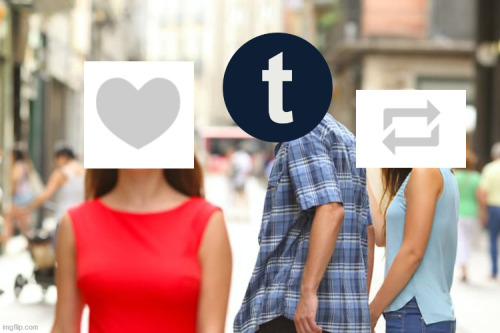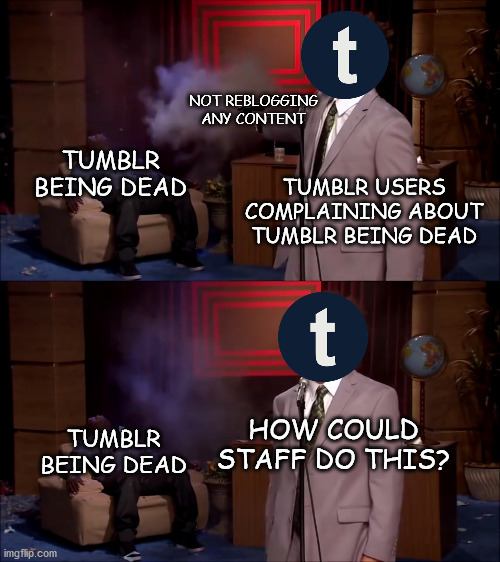Tumblr Users Will See The Word Shrimp And Black Out And Hit Reblog Without Reading The Rest Of The Post
tumblr users will see the word shrimp and black out and hit reblog without reading the rest of the post
🦐
More Posts from Emilerry and Others
sans won by 0.1% of the votes! OBLITERATE that twink!

You’re writing PTSD dreams wrong
But don’t worry, most writers are and I’m here to help because reading them is making me cRAzY.
I’m writing this because I’ve read three otherwise great romance novels back to back featuring characters dealing with PTSD (or PTSD symptoms) and each one of them made the same dream mistakes. I honestly can’t think of a fiction book I’ve read that didn’t make these mistakes, so I thought I’d compile a handy dandy list of mistakes and how to fix them.
Lucky for you, I have PTSD and a ton of fellow veteran friends who deal with these symptoms.
*This is based on my experience and things told to me by friends. This is not to say that the below doesn’t happen in real life, only that it’s not as common as you might think.
The issue with these dreams is twofold: on one side is the psychological accuracy of the dream and on the other side is how you’re using the dream within the narrative.
Oh an Black Sails spoilers-ish ahead.
1) Stop writing the dream as a shot-by-shot accurate retelling of Traumatic Event.
Listen, not only do dreams seldom follow reality, but our own memories are tricky at best. I don’t remember getting beaten up because a) it was horrifying and we block stuff like that out and b) I was going in and out of consciousness. It would be pretty strange for me to dream something I don’t even fully remember. Our brains are simply not wired to do these vivid factually-accurate cinematic retellings.
My friend dreams things that did happen, but in his own words those dreams are always wrong in some noticeable or bizarre way. For instance, he’s getting chased through the streets of Iraq by a werewolf.
2) Dreams are informed by reality, not direct reflections of it.
It’s entirely likely my friend dreamt of a werewolf in Iraq because I got him binge watching Supernatural and the two ideas merged in his dreamstate. But see, that’s how dreams work.
The trauma event exists as a constant in his subconscious, but he has all this other information right there in his conscious mind all day, every day. In dreams, there isn’t a clear delineation between that information.
My dreams are often dependent on whatever I’ve fallen asleep watching on television. The themes are consistent, but not the content.
In Black Sails, Captain Flint’s trauma dreams feature his dead partner and friend following him around his empty ship. You have an element of the trauma (the animated corpse of his friend) + his daily existence (his ship). The two things intersect to form these unsettling nightmares as expressions of his fears and grief. He never once relives the event itself in his dreams as shown on screen.

Speaking of…
3) Trauma dreams often revolve around feelings, not necessarily the events themselves.
The PTSD package generally includes heaps of shame, guilt, anger and fear. As someone who survived a beating when I should have had control of the situation, my dreams tend to revolve around fear that people will know I’m a fraud or being unable to act in a dangerous situation.
Again, it’s entirely common for trauma victims to not remember large chunks (or the whole thing) of the trauma event. So why should their dreams be stunningly accurate? What we remember are feelings. Real strong feelings.

You cannot go wrong if you write your trauma dream around feelings, not a specific event.
4) If you present trauma dreams as expressions of themes, you can let go of the trauma dream as an exposition dump/way overused suspense trope.
You know you’ve read this: MC has dreams that are a shot-by-shot retelling of Traumatic Event that always cut off right before Traumatic Event, so that the Big Reveal must happen by a discovery later in the novel.
If I were the MC in a book, the easy and common thing would be to use the “dream sequence” as an expository retelling of Traumatic Event as a way to give some backstory to why I might be surly, mistrustful, afraid to try something new, whatever, and to clumsily shoehorn in suspense where there doesn’t need to be.
The much more interesting thing might be if my dreams were inconsistent in content but consistent in theme. In one I’m on an alien planet (because I fell asleep watching the Science Channel again) and the ground opens up and I fall into a pit from which I can’t escape because I am helpless. In another a man is watching me while I sleep where I am again frozen and helpless. This would force the reader to think: what is the recurring issue in these dreams? Why is it important? What is this telling me about this character and what happened to her?
It could be a personal preference, but I’d rather see the Traumatic Event either told in narrative flashbacks (not dreams) or verbally retold by the character in question. Let the dreams tell me something deeper about the character. It’s not that I was beat up, it’s that I feel like a failure because of it. One of these things is a shallow factual detail, the other tells you something about me as a person that I’m sharing with you, gentle reader, because talking about this stuff is healthy.
5) The Traumatic Event doesn’t have to be a big secret.
In Black Sails, we know what happened to Captain Flint’s partner. It happened in real time in the show. That didn’t make his uber disturbing dreams less disturbing or mysterious. Fans still debate exactly what the symbolism was and what they were telling us about James Flint in those moments. We do know from the dreams that he was disturbed, obsessed, and also monumentally guilty and blaming himself for what happened.
The mystery was perhaps more heightened by the fact that the dreams weren’t direct reflections of reality. We know who this person was, what she believed, and why she died. That Flint is imagining her screaming silently in his ear is horrifying and discordant with what we know to be factual. This adds emotional complexity to his character and the decisions he’s making while suffering these dreams.

^^^this didn’t happen. It was a dream. A real unsettling dream.
Once you let go of the concept of the trauma dream as a literal retelling and exposition dump, you have the entire dreamscape to work in other narrative elements, like symbolism, metaphor, foreshadowing, etc.
*1st gif source: @idontwikeit
*dry food crunches* Ridiculously small kitten: “Myam myam myam. Njam njam njam njam njam njam njam! Myam myam myam nyam nyam myam. Mmmam. Mrrrrram. Meep!”
o7

TODAY IS ACTUAL INDEPENDENCE DAY..... ERET’S BETRAYAL, THE TOMMY/DREAM DUEL, TOMMY GIVING UP THE DISCS..... CAN EVERYONE PLEASE GET THE FUCK UP




since y’all didn’t respond to my well thought out post. have some memes calling y’all out, as well as a link to my other well thought out and written post. i’m tired of seeing people complain about their dash being dead, when they only like shit. reblog or shut up - LINK
for reference -


winter by Katie Maria ( @heavensghost )
if i see even one more of my russian lit mutuals making pedantic complaints about how katya should be goncharova and not goncharov i'm going to lose my mind. As if the film isn't literally all about cultural dissonance. As if it's not OVERTLY satirical with regards to american stereotypes about Russians, especially back in the 70's when Scorsese was working. Like of course her name is the literalization of Americans misunderstanding and misappropriating other cultures and languages. And that's before we even get into the gender politics of giving Katya a masculine name. There's such an interesting conversation to be had about the strategic withholding of womanhood, even by Katya herself as a self-defense technique in the male-dominated and hypermasculine Naples mafia culture, but all you guys want to do is summarize the Wikipedia page for russian naming conventions to prove you were the runner-up in the 8th grade scholastic spelling bee. Like I understand the impulse but it really makes me worry for the reading comprehension on this website.

-
 ashybooooop liked this · 1 week ago
ashybooooop liked this · 1 week ago -
 kibo-ichiro reblogged this · 1 week ago
kibo-ichiro reblogged this · 1 week ago -
 tbonechessor liked this · 1 week ago
tbonechessor liked this · 1 week ago -
 jen-kellen reblogged this · 1 week ago
jen-kellen reblogged this · 1 week ago -
 dykish-autist reblogged this · 1 week ago
dykish-autist reblogged this · 1 week ago -
 gashapontoy liked this · 1 week ago
gashapontoy liked this · 1 week ago -
 velumi liked this · 1 week ago
velumi liked this · 1 week ago -
 matayejaan reblogged this · 1 week ago
matayejaan reblogged this · 1 week ago -
 kissestaakoandhanni reblogged this · 1 week ago
kissestaakoandhanni reblogged this · 1 week ago -
 sky-of-starflowers reblogged this · 1 week ago
sky-of-starflowers reblogged this · 1 week ago -
 sky-of-starflowers liked this · 1 week ago
sky-of-starflowers liked this · 1 week ago -
 smallmight reblogged this · 1 week ago
smallmight reblogged this · 1 week ago -
 smallmight liked this · 1 week ago
smallmight liked this · 1 week ago -
 venusensible liked this · 1 week ago
venusensible liked this · 1 week ago -
 probablymoons liked this · 1 week ago
probablymoons liked this · 1 week ago -
 wayfaringpanda reblogged this · 1 week ago
wayfaringpanda reblogged this · 1 week ago -
 farfromuniquer reblogged this · 1 week ago
farfromuniquer reblogged this · 1 week ago -
 pricklypearjuice liked this · 1 week ago
pricklypearjuice liked this · 1 week ago -
 endless-tsundoku reblogged this · 1 week ago
endless-tsundoku reblogged this · 1 week ago -
 gunnarstroker reblogged this · 1 week ago
gunnarstroker reblogged this · 1 week ago -
 gunnarstroker liked this · 1 week ago
gunnarstroker liked this · 1 week ago -
 innalheid reblogged this · 1 week ago
innalheid reblogged this · 1 week ago -
 hyenaqueena reblogged this · 1 week ago
hyenaqueena reblogged this · 1 week ago -
 caelanthe reblogged this · 1 week ago
caelanthe reblogged this · 1 week ago -
 ginichimarutaichou reblogged this · 1 week ago
ginichimarutaichou reblogged this · 1 week ago -
 ginichimarutaichou liked this · 1 week ago
ginichimarutaichou liked this · 1 week ago -
 dirtfacedyke reblogged this · 1 week ago
dirtfacedyke reblogged this · 1 week ago -
 birdsquidd reblogged this · 1 week ago
birdsquidd reblogged this · 1 week ago -
 eatthekidsfirst reblogged this · 1 week ago
eatthekidsfirst reblogged this · 1 week ago -
 rune-rot reblogged this · 1 week ago
rune-rot reblogged this · 1 week ago -
 oooh-crumble-through reblogged this · 1 week ago
oooh-crumble-through reblogged this · 1 week ago -
 oooh-crumble-through liked this · 1 week ago
oooh-crumble-through liked this · 1 week ago -
 maikanto reblogged this · 1 week ago
maikanto reblogged this · 1 week ago -
 maikanto liked this · 1 week ago
maikanto liked this · 1 week ago -
 sashaforthewin reblogged this · 1 week ago
sashaforthewin reblogged this · 1 week ago -
 reunicel liked this · 1 week ago
reunicel liked this · 1 week ago -
 swichieboiii reblogged this · 2 weeks ago
swichieboiii reblogged this · 2 weeks ago -
 willowplantcat reblogged this · 2 weeks ago
willowplantcat reblogged this · 2 weeks ago -
 unicellularalgae reblogged this · 2 weeks ago
unicellularalgae reblogged this · 2 weeks ago -
 keytobernadette liked this · 2 weeks ago
keytobernadette liked this · 2 weeks ago -
 neverquiteeden liked this · 2 weeks ago
neverquiteeden liked this · 2 weeks ago -
 vex-posts liked this · 2 weeks ago
vex-posts liked this · 2 weeks ago -
 devourerofmugsofcoffe reblogged this · 2 weeks ago
devourerofmugsofcoffe reblogged this · 2 weeks ago -
 toomanyteethinmypocket liked this · 2 weeks ago
toomanyteethinmypocket liked this · 2 weeks ago -
 toomanyteethinmypocket reblogged this · 2 weeks ago
toomanyteethinmypocket reblogged this · 2 weeks ago -
 remarkablebookbean reblogged this · 2 weeks ago
remarkablebookbean reblogged this · 2 weeks ago -
 fandoms-you-never-knew-existed reblogged this · 2 weeks ago
fandoms-you-never-knew-existed reblogged this · 2 weeks ago -
 jngbnlvr liked this · 2 weeks ago
jngbnlvr liked this · 2 weeks ago -
 midnight-cryptid-t reblogged this · 3 weeks ago
midnight-cryptid-t reblogged this · 3 weeks ago -
 sunset-peril reblogged this · 3 weeks ago
sunset-peril reblogged this · 3 weeks ago






